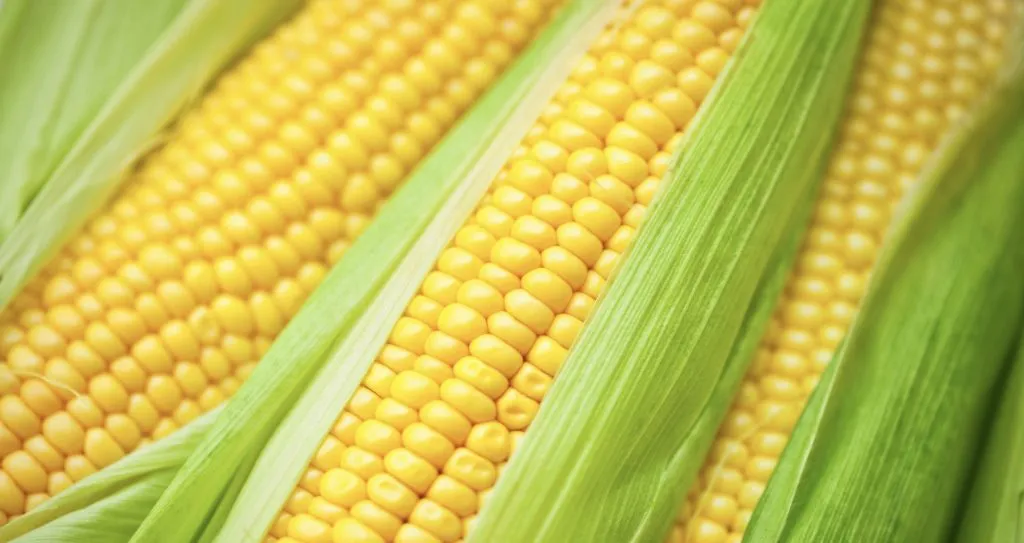Is Corn Hypertensive? Understanding Its Impact on Blood Pressure

Corn, a staple food in many cultures, is celebrated for its versatility, affordability, and nutritional value. From fresh corn on the cob to popcorn and cornmeal, this grain is a dietary mainstay across the globe. However, concerns about diet and health, particularly regarding conditions like hypertension (high blood pressure), often prompt questions about whether certain foods, including corn, contribute to or alleviate such issues. This article explores whether corn is hypertensive, diving into its nutritional profile, preparation methods, and their potential effects on blood pressure, while providing evidence-based insights for health-conscious readers.
What Is Hypertension?
Hypertension, commonly known as high blood pressure, is a medical condition where the force of blood against artery walls is consistently too high. It’s a major risk factor for heart disease, stroke, and kidney problems. Blood pressure is measured in millimeters of mercury (mmHg) with two numbers: systolic (pressure during heartbeats) and diastolic (pressure between heartbeats). A reading of 130/80 mmHg or higher is generally considered hypertensive, according to the American Heart Association.
Diet plays a significant role in managing blood pressure. Foods high in sodium, saturated fats, or added sugars can exacerbate hypertension, while those rich in potassium, magnesium, and fiber may help regulate it. With this in mind, let’s examine corn’s nutritional makeup and its potential impact on blood pressure.
Corn’s Nutritional Profile
Corn, or maize, is a whole grain when consumed in its unprocessed form (e.g., fresh, frozen, or dried kernels). It’s rich in carbohydrates, providing energy, and contains a range of nutrients that can contribute to overall health. Here’s a breakdown of the key nutrients in a 100-gram serving of cooked yellow corn (approximately 1 small cob or 2/3 cup of kernels):
- Calories: 96 kcal
- Carbohydrates: 21 grams (including 2.4 grams of fiber)
- Protein: 3.4 grams
- Fat: 1.5 grams (mostly unsaturated)
- Potassium: 218 mg
- Magnesium: 26 mg
- Sodium: 1 mg (naturally low, though added salt in processed forms increases this)
- Other: Small amounts of vitamins like folate, vitamin C, and B vitamins
These nutrients position corn as a potentially heart-healthy food, particularly due to its potassium, magnesium, and fiber content, which are linked to blood pressure regulation. However, the way corn is prepared and consumed can significantly alter its health effects.
Does Corn Cause High Blood Pressure?
The short answer is no—corn itself is not hypertensive. There’s no evidence to suggest that whole, unprocessed corn directly causes or worsens high blood pressure. In fact, its nutrient profile suggests it could be beneficial for maintaining healthy blood pressure when consumed as part of a balanced diet. Let’s explore why:
1. Potassium and Blood Pressure Regulation
Potassium is a critical mineral for managing blood pressure because it helps balance sodium levels in the body and promotes vasodilation (widening of blood vessels), which reduces arterial pressure. A 100-gram serving of corn provides about 218 mg of potassium, contributing to the recommended daily intake of 2,600–3,400 mg for adults. Diets rich in potassium, such as those including fruits, vegetables, and whole grains like corn, are associated with lower blood pressure, according to studies like those published in the Journal of the American College of Cardiology.
2. Magnesium’s Role
Magnesium supports vascular health by relaxing blood vessels and improving blood flow. Corn provides a modest amount of magnesium (26 mg per 100 grams), which, while not as high as in leafy greens or nuts, still contributes to the daily recommended intake of 310–420 mg. Research, such as a 2016 meta-analysis in Hypertension, has shown that magnesium supplementation can modestly lower blood pressure, and dietary sources like corn can play a supportive role.
3. Fiber for Heart Health
The fiber in corn (2.4 grams per 100 grams) promotes cardiovascular health by helping to regulate cholesterol levels and improve digestion. While fiber’s direct impact on blood pressure is less pronounced, it contributes to overall heart health, which is crucial for those managing hypertension. The Dietary Approaches to Stop Hypertension (DASH) diet, widely recommended for blood pressure control, emphasizes fiber-rich foods like whole grains, including corn.
4. Low Natural Sodium Content
Whole corn is naturally very low in sodium (1 mg per 100 grams), making it a good choice for those monitoring sodium intake to manage blood pressure. The American Heart Association recommends keeping sodium intake below 2,300 mg per day, ideally closer to 1,500 mg for those with hypertension. Unprocessed corn fits well within these guidelines.
When Corn Might Pose a Concern
While whole corn is unlikely to contribute to hypertension, the way it’s prepared or processed can make a difference. Here are some scenarios where corn-based foods could indirectly affect blood pressure:
1. High-Sodium Processed Corn Products
Many corn-derived products, such as corn chips, canned corn, or frozen corn with added sauces, contain significant amounts of sodium. For example:
- Corn chips: A 1-ounce serving (about 10–15 chips) can contain 150–200 mg of sodium, sometimes more with flavored varieties.
- Canned corn: A half-cup serving may have 200–400 mg of sodium unless labeled “low-sodium” or rinsed thoroughly to remove added salt.
- Corn-based snacks: Items like cheese puffs or flavored popcorn can pack 300 mg or more of sodium per serving.
Excessive sodium intake is a well-established contributor to hypertension, as it causes the body to retain water, increasing blood volume and pressure. Regularly consuming high-sodium corn products could counteract the benefits of whole corn.
2. High-Calorie Preparations
Corn dishes prepared with butter, cheese, or creamy sauces (e.g., creamed corn or elote with heavy toppings) can be high in calories and saturated fats. While these don’t directly cause hypertension, they can contribute to weight gain, which is a risk factor for high blood pressure. Maintaining a healthy weight is crucial for blood pressure control, as excess body fat, particularly around the abdomen, can strain the cardiovascular system.
3. Glycemic Index Considerations
Corn has a moderate to high glycemic index (GI), depending on its form (e.g., cornmeal or polenta has a GI of 68–70, while fresh corn is closer to 52). High-GI foods can cause rapid blood sugar spikes, which, over time, may contribute to insulin resistance and indirectly affect cardiovascular health. For individuals with diabetes or metabolic syndrome—conditions often linked to hypertension—portion control with corn is important.
How to Include Corn in a Blood Pressure-Friendly Diet
To maximize corn’s benefits while minimizing potential risks, consider these tips:
- Choose Whole or Minimally Processed Corn:
- Opt for fresh corn on the cob, frozen corn (without added salt or sauces), or dried corn for grinding into cornmeal.
- Rinse canned corn to remove excess sodium if low-sodium options aren’t available.
- Limit Sodium:
- Season corn with herbs, spices, or a squeeze of lime instead of salt.
- Avoid or moderate consumption of high-sodium snacks like corn chips or flavored popcorn.
- Watch Preparation Methods:
- Grill, steam, or boil corn to keep it low-calorie and nutrient-dense.
- Use healthy fats like olive oil sparingly instead of butter or creamy sauces.
- Pair with Other Nutrient-Dense Foods:
- Combine corn with potassium-rich foods like spinach, avocado, or beans to enhance its blood pressure-friendly profile.
- Include it in a DASH-style diet alongside fruits, vegetables, lean proteins, and low-fat dairy.
- Practice Portion Control:
- A typical serving is 1/2 to 1 cup of kernels or one small cob. This helps manage calorie and carbohydrate intake, especially for those with blood sugar concerns.
Conclusion
Corn is not hypertensive and can be a nutritious part of a diet aimed at maintaining healthy blood pressure. Its potassium, magnesium, and fiber content align with dietary recommendations for cardiovascular health, and its naturally low sodium content makes it a good choice for those managing hypertension. However, caution is warranted with processed corn products, which can be high in sodium, and calorie-heavy preparations that may contribute to weight gain.
For individuals with hypertension or at risk for it, incorporating whole corn in moderation, prepared healthfully, is a smart strategy. As always, dietary choices should be tailored to individual health needs, and consulting a healthcare provider or dietitian can provide personalized guidance. So, enjoy that corn on the cob—just skip the extra salt!
Note: This article is for informational purposes only and not a substitute for medical advice. Always consult a healthcare professional for personalized dietary recommendations, especially if you have hypertension or other health conditions.






